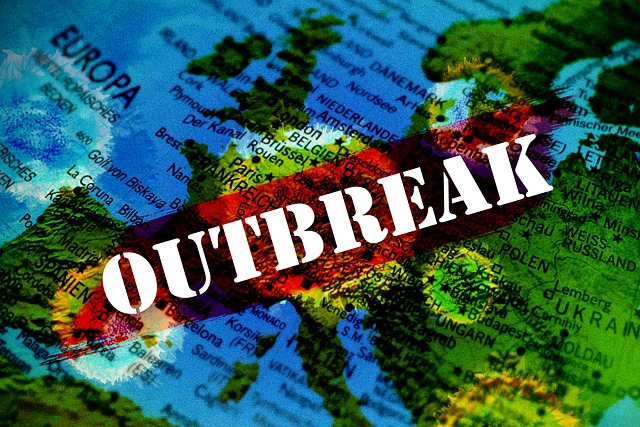The first pandemic of the 21st century. The famous coronavirus outbreak in China, particularly in the town of Wu Chang, has spread to Europe. The country most affected is Italy. But not only our health is threatened, but also the world economy. For example, tourism is on the verge of collapse, as is the global merchandise trade. It is not only businesses that are affected. Schools are closed, children are staying home, and most companies are allowing employees to telecommute. Health officials are calling and appealing for prescription drugs to be provided in waiting rooms, as there is a high possibility of infection.
How do experts view this situation?
The coronavirus is also causing a slowdown in the global economy and economic growth. However, the extent of the slowdown is not yet clear. The extent of the slowdown is hotly debated, with some saying as little as a tenth of a percent, while others say a higher unit of percent. This is due in part to the fact that we do not have standard macroeconomic data from which to make standard macroeconomic forecasts.” At the moment, it is a comparative analysis, i.e., a comparison with similar events in history. Presented by Michal Brožka, an analyst at Komerční banka, [11 [However, economist Vilém Semelák has a more definite view . It is the same as during the socialist period in our country: people will overstock during a sudden supply shortage or during an epidemic of another contagious disease. But in the future the supply will be consumed. What is more important is how long the shock will last.
Italian cities are empty and merchants are worried about what will happen next.
As you already know, Italy is the hardest hit region in Europe. But Italian merchants are suffering the most. The streets are empty. Italy That is why analysts believe that the Italian economy is going into recession. A recession is usually two consecutive quarterly downturns, says Lorenzo Godogno, an analyst at LC Macro Advisors . People will stay home and cancel their hotel reservations. But even more damaging will be the later impact on business in the form of supply chain disruptions.” ” He predicts that the decline in the Italian economy will accelerate to 1% in the first quarter of 2020.
The coronavirus is already endemic in Germany. 29]
The German federal states have reported confirmed cases of coronavirus infection, with 52 people infected in the past 24 hours. There are currently 240 infected people. According to statistics, the most infected are in North Rhine-Westphalia with more than 111 people. Bavaria has 48. Baden-Württemberg has 18. Hesse and Berlin reported 12 and 6 cases, respectively. In the other states, a maximum of four cases have been reported. Taken together, the overall risk of infection is rated as moderate.
The economy is beginning to decline.
The German economy has also begun to decline as a result of the coronavirus.
The German economy is also beginning to decline due to the coronavirus, especially in the auto parts, clothing, and computer sectors. However, it is not only shipments from China that are restricted, but also those from Italy, an important trading partner of Germany. Several auto companies that do business with China even allow their Chinese employees to work from home. They have also cancelled all business trips indefinitely: BMW, Audi, and Allianz, to name a few.
Analysts are recalculating their annual growth forecasts. They believe, however, that a global economic downturn is not preventable. According to the experts, the global economy is expected to fall by half to one percent. [Germany\’s gross domestic product fell 0.1% from the previous quarter. But it was exports that were most affected, falling 0.6%, and business investment fell 0.2%, its worst performance since 2013.
The U.S. was hit unexpectedly
The U.S. Fed cut interest rates to a range of 1.00-1.25% In 2000, the Fed cut rates because of the financial crisis; the Fed made this decision precisely because of concerns about a recession.
ECB decides to intervene
On March 12, the ECB begins its monetary meeting; the ECB announces that interest rates are at zero, and any further cuts would put rates in negative territory. Therefore, so-called quantitative easing is likely to be implemented. Like the German government, the ECB is prepared to intervene decisively in the event of a crisis.
.